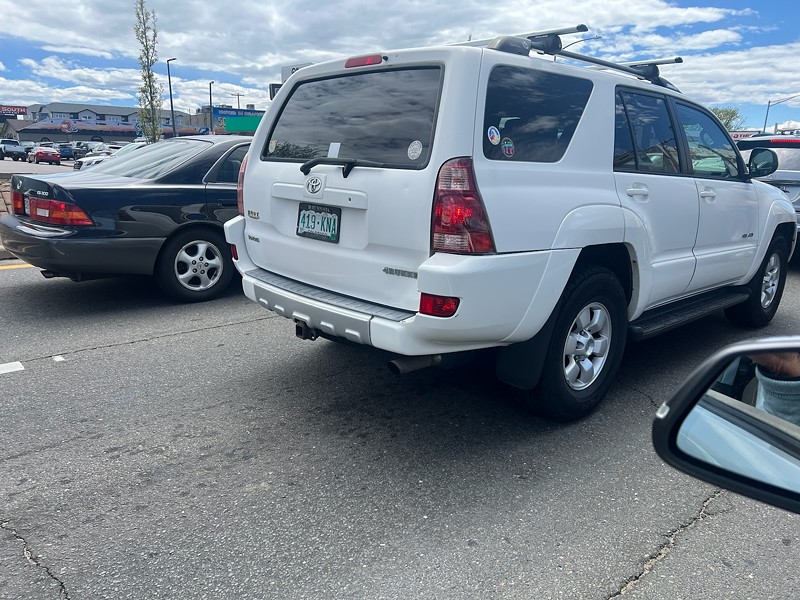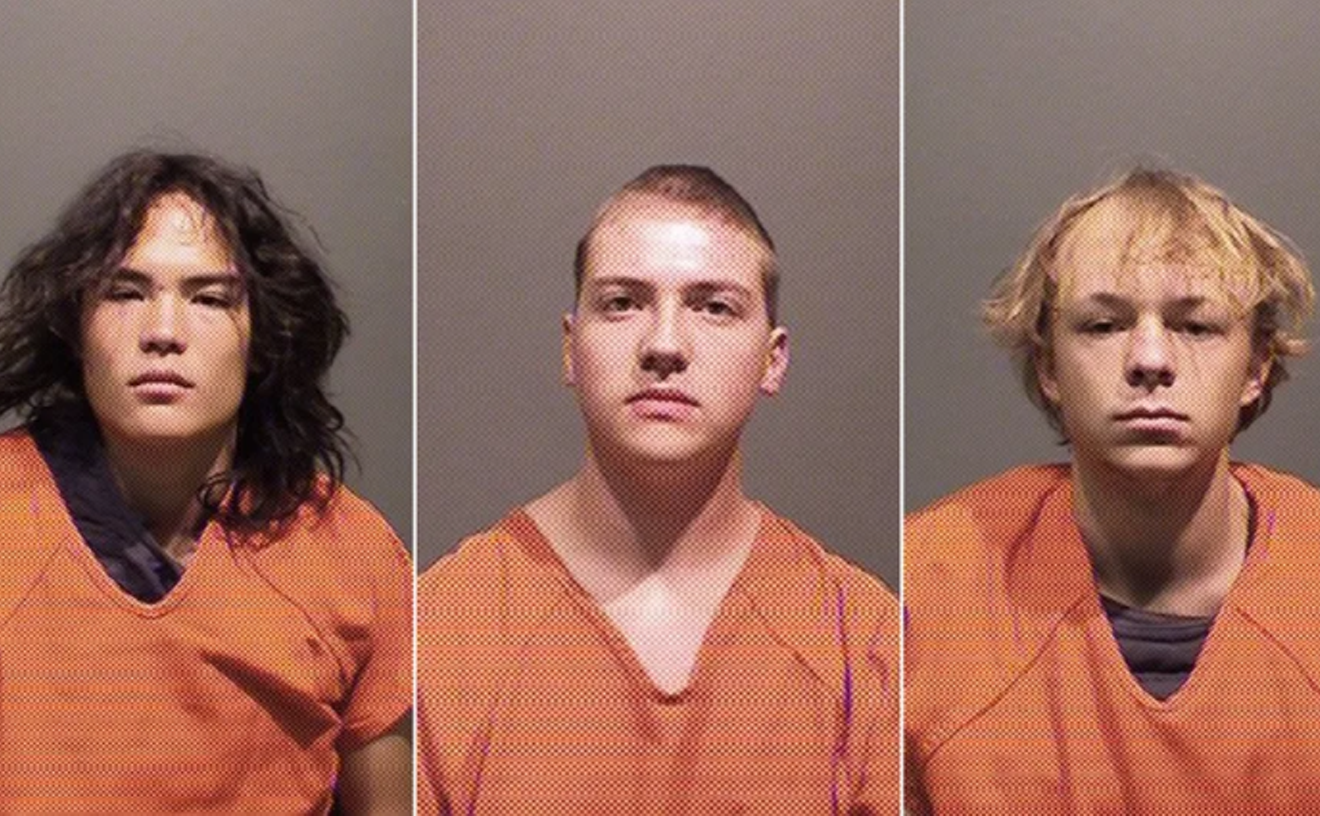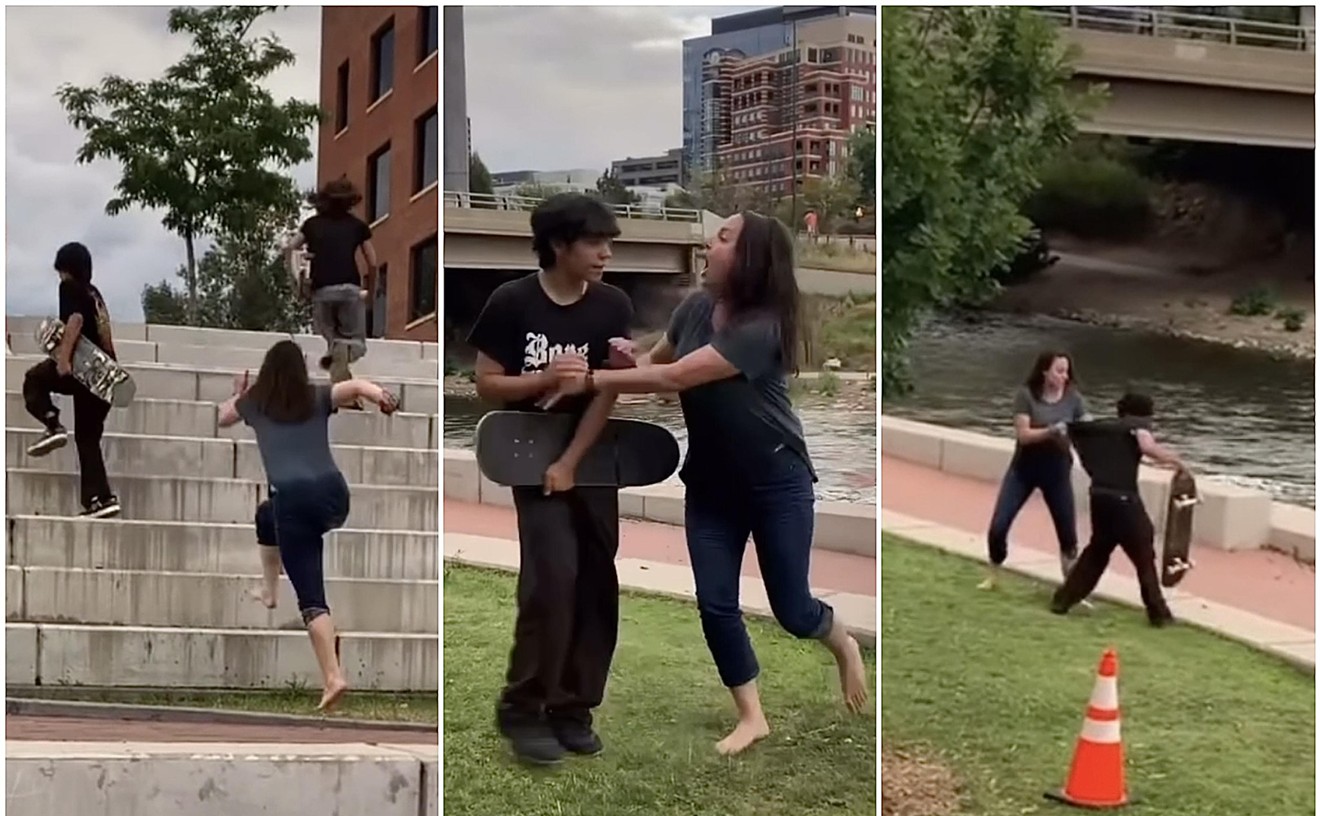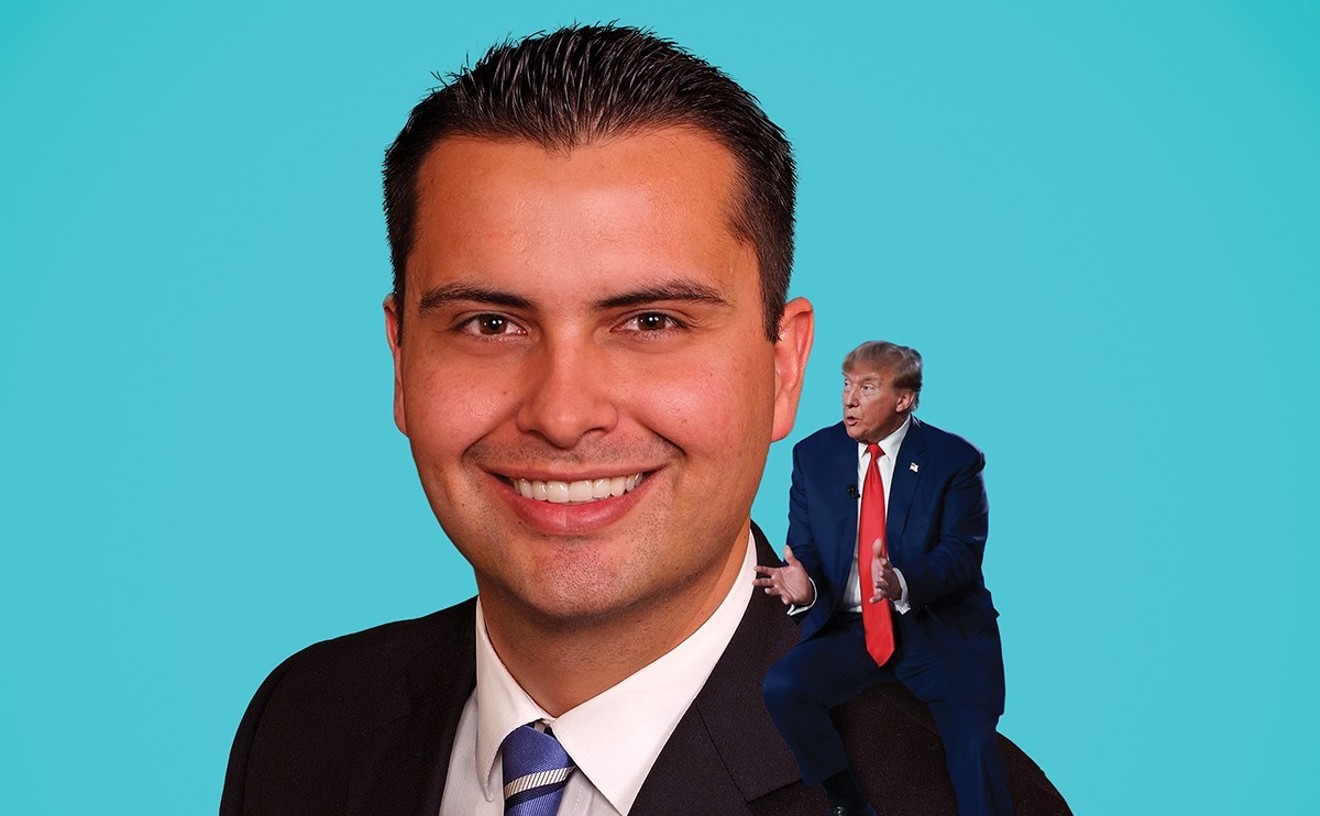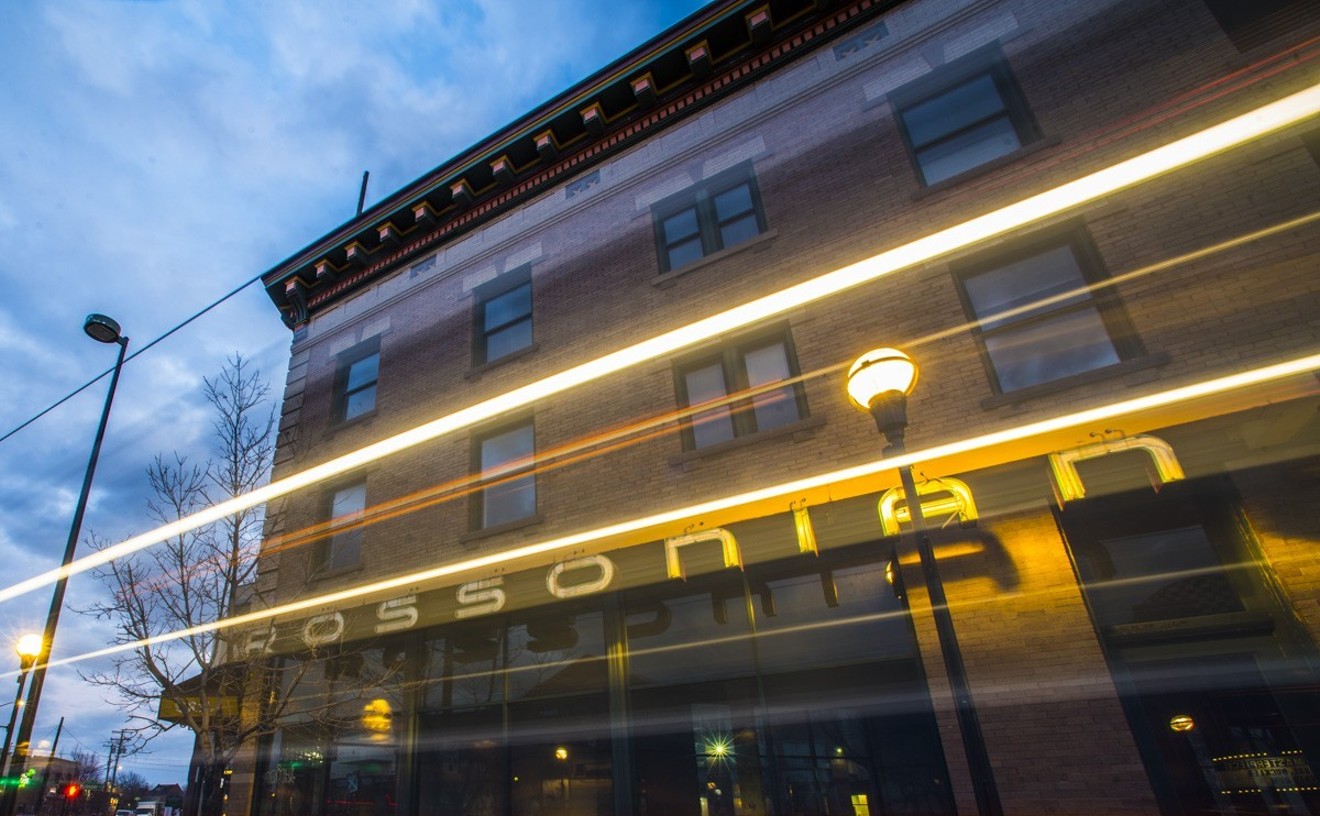It used to be that driving a car with expired plates made you feel like public enemy number one, a target for every patrolling police car or parking enforcement officer. Scofflaws who had yet to apply for their new stickers — or were still waiting on the post office — would count down the days as that one-month grace period expired, then take to driving on side streets and stashing their cars in out-of-the-way spots in order to avoid a hefty ticket.
With limited office hours and enforcement reductions during the pandemic, however, Denver became a procrastinator's paradise — much to the irritation of law-abiding citizens who keep spotting cars with tags that expired years ago (sometimes more than three years ago, like the plate above). That irritation escalated last month, when the Denver Police Department adopted a new policy that officially reduces "low-level traffic stops," in part to better allot scarce resources and to avoid accusations of profiling, a perennial problem.
Denver City Councilman Kevin Flynn was among the residents outraged by parts of that new policy. On June 2, he posted a "Council District 2 Two-Minute Talk" video, sharing how his office found eighteen expired tags and two vehicles with no tags at all during a fifteen-minute survey of the Bear Valley Shopping Center on a weekday afternoon.
"It's going to get worse," Flynn warns: Not only are unregistered cars often driven by uninsured drivers, increasing insurance costs for all, but the new policy will also impact city coffers. In 2023, he notes, Denver collected $187 million in registration fees; by failing to ticket people for expired plates, the city is "leaving tens of millions of dollars on the table."
But now the DPD is temporarily resetting that table, and lifting at least one section of the new policy. Starting on July 15, the department will launch a one-month period of targeted enforcement of expired vehicle registrations and invalid temporary plates; the department is warning people to obtain proper registration immediately, in order avoid the possibility of a $95 fine.
This "enforcement period is responsive to those community concerns," the department acknowledges.
Denver isn't going as far as St. Charles, Missouri, a suburb of St. Louis that has been actively encouraging citizen snitching, noting on its website that "You can report expired temp tags in the City of St. Charles by sending a photo to [email protected]."
After Mayor Dan Borgmeyer invited residents to send in photos of bad plates, St. Charles received more than 4,100 in a year — from a city of about 71,000 people — according to an April story by the New York Times, which rounded up concerns about expired tags around the country. The problem doesn't just involve pandemic-induced delays, according to the Times. Criminals are actively taking advantage of lax enforcement by creating fake temporary tags; St. Charles investigators found one St. Louis man who'd produced more than 300 counterfeit temporary tags that he sold for $60 each.
Instead of urging residents to report expired tags and suspicious temporary plates, though, Denver is simply encouraging vehicle owners to get street legal, according to DPD spokesman Doug Schepman.
And do it fast, because on July 15 the DPD will be "temporarily, and partially, suspending its policy regarding low-level traffic stops" adopted in May 2024. That policy emphasizes that officers should focus their time and efforts on addressing serious, crash-causing violations such as "speeding, reckless/careless driving, disobedience to traffic signals, etc.," according to the department.
It also "limits officers from conducting traffic stops for lower-level traffic offenses that do not pose a risk to public...such as equipment violations (inoperable headlight/taillight, cracked windshield that doesn’t block driver’s view), expired vehicle registration, expired temporary license plate, etc."
On August 17, the temporary suspension of the rules will be lifted, and this new portion of the DPD policy manual will again be in force: "Low-level traffic stops (minor traffic infractions that do not pose an immediate threat to public safety) will not be conducted unless officers are acting upon articulable information in addition to the traffic violation, which may or may not amount to reasonable suspicion ... “
And an expired plate doesn't count.
[
{
"name": "Air - MediumRectangle - Inline Content - Mobile Display Size",
"component": "12017618",
"insertPoint": "2",
"requiredCountToDisplay": "2",
"watchElement": ".fdn-content-body",
"astAdList": [
{
"adType": "rectangle",
"displayTargets": "mobile"
}
]
},{
"name": "Editor Picks",
"component": "17242653",
"insertPoint": "4",
"requiredCountToDisplay": "1",
"watchElement": ".fdn-content-body",
"astAdList": [
{
"adType": "rectangle",
"displayTargets": "desktop|tablet"
},{
"adType": "rectangle",
"displayTargets": "desktop|tablet|mobile"
}
]
},{
"name": "Inline Links",
"component": "18838239",
"insertPoint": "8th",
"startingPoint": 8,
"requiredCountToDisplay": "7",
"maxInsertions": 25
},{
"name": "Air - MediumRectangle - Combo - Inline Content",
"component": "17261320",
"insertPoint": "8th",
"startingPoint": 8,
"requiredCountToDisplay": "7",
"maxInsertions": 25,
"watchElement": ".fdn-content-body",
"astAdList": [
{
"adType": "rectangle",
"displayTargets": "desktop|tablet"
},{
"adType": "rectangle",
"displayTargets": "desktop|tablet|mobile"
}
]
},{
"name": "Inline Links",
"component": "18838239",
"insertPoint": "8th",
"startingPoint": 12,
"requiredCountToDisplay": "11",
"maxInsertions": 25
},{
"name": "Air - Leaderboard Tower - Combo - Inline Content",
"component": "17261321",
"insertPoint": "8th",
"startingPoint": 12,
"requiredCountToDisplay": "11",
"maxInsertions": 25,
"watchElement": ".fdn-content-body",
"astAdList": [
{
"adType": "leaderboardInlineContent",
"displayTargets": "desktop|tablet"
},{
"adType": "tower",
"displayTargets": "mobile"
}
]
}
]

